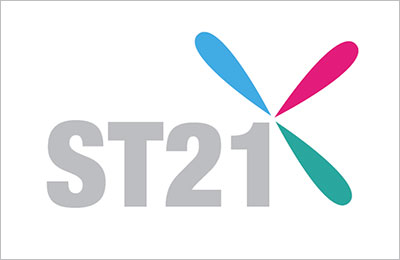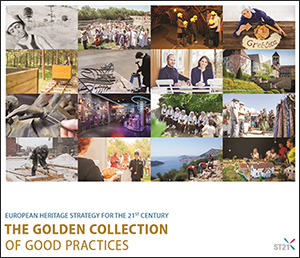Location of the initiative:

Initiator
National, Regional/Local authorities and Academic/Scientific institutions in Turkey
Relation to Strategy 21 Recommendations:
Time span of the initiative:
1992 - Ongoing
Motivation / Methodology
İzmir Region Excavations and Research Project (IRERP) of Ankara University Mustafa V. Koç Research Center for Maritime Archaeology ANKÜSAM aims to raise interest and awareness of maritime archaeology in Turkey as well as to develop and to help putting national and international policies into practice in this field. Education is one of the top priorities of the center along with scientific research.
The Initiative carries out archaeological excavations both on land and underwater and promotes investigations of coastal archaeological sites with an interdiciplinary approach. Liman Tepe land and underwater excavations also serve as a field school for the students of archaeology. Underwater excavations uncover submerged harbour structures, which is unique in Turkey, belongs 6th and 4th century BC. Many students of archaeology are being trained through this work and are being acquainted to excavation, documentation, conservation and to the study of archaeological heritage on land as well as underwater. Conservators work at the lab during most of the year on archaeological material originating from land excavations as well as waterlogged material from underwater excavations of the center at Liman Tepe.
ANKÜSAM organizes special underwater archaeology training courses for the staff of the Ministry of Culture and Tourism of Turkey almost every year. Archaeologists working at the ministry, by attending these courses, gain firsthand practice in studying, documenting and protecting submerged cultural heritage. At a later stage, they also get a chance to be government representatives in archaeological projects that involve underwater research.
ANKÜSAM also collaborates in experimental archaeology projects with 360 degrees research group. Through this collaboration, “Re-animation of Early Cycladic Long Boats” project, funded by Ankara University, resulted in the re-creation of an Early Bronze Age Cycladic boat which was put on display in an international exhibition in İstanbul, initiating a public awareness of prehistoric maritime archaeology.
İzmir Region Excavations and Research Project (IRERP) initiates a wide spectrum of interdisciplinary scientific work and involves international participation in every level to ensure that an internationally diverse range of experience and knowledge conjoins to create best practice in a comprehensive regional archaeological research project.
Participation at IRERP’s archaeological activities in Urla is a great way of training future archaeologists who will be leading scholars in their countries in the future. These activities also transformed Urla into a well-known center for underwater archaeological research in Turkey.
The project has successfully initiated public awareness, and through its various activities continues to offer a chance for the locals to get a first-hand experience and knowledge of the methods and techniques that scientists use to understand and protect our past.
Obstacles / Barriers
İzmir Region Excavations and Research Project (IRERP) was initiated in 1992 by late Prof. Dr. Hayat Erkanal (Ankara University) with an aim to investigate the pre-classical cultures of the İzmir Region and western Turkey in a broader sense. There were no initiatives focused on this subject in this area at that time thus, it was a challenging initiative to start with. İskele locality of Urla is a fisherman town with a beautiful Aegean landscape. Raising public awareness for the protection of cultural heritage in Urla where the land and underwater excavations of Liman Tepe is taking place was an important challenge throughout the implementation of the initiative because the area is a touristic destination and properties are expensive, thus, archaeologists were first approached as people who came to stop constructional development in the area by declaring protection zones.
Through good contacts with the locals and public lectures and press releases, the archaeological importance of the region was make known to the inhabitants of the area. By organizing scientific conferences with the attendance of international scientific participation, the importance of the area was highlighted and eventually through the time, a certain level of public awareness and a participation in the initiative is achieved. Locals were given job opportunities by taking place in the scientific and other activities of the project and this further strengthened their connection with their archaeological heritage.
Funding has always been and still is an important barrier in achieving the goals set by the project. Creating better financial sources will undoubtedly help initiating an even more comprehensive approach and new steps can be taken regarding the preservation, education and scientific research aims of the initiative.
The interest and support of Ministry of Culture and Tourism, Ankara University, İzmir Metropolitan Municipality, Urla Municipality and other cooperations is vital in the development and sustainability of the initiative in the future.
Change / Impact
The initiative is fully recognised and supported by public institutions, regional authorities and the local public. Not solely because of the Izmir Region Excavations and Research Project (IRERP) but with the contributions of various other initiatives, today Urla has become one of the top tourism destinations in Turkey where the visitors can visit archaeological sites, can get a closer insight of how archaeological work has been carried out on land and underwater, can taste delicious local food and spend good time.
Through education programs of the initiative, until now more than fifty archaeologists of the Ministry of Culture and Tourism, Turkey have gone through a basic training program on maritime archaeology and are now better equipped on this matter. Numerous archaeology students who will be the next generation of archaeology in Turkey and beyond, are attending the field projects of the IRERP and are getting trained by an international group of scholars in various interdisciplinary aspects of archaeology.
IRERP is also raising awareness on maritime archaeology, by promoting and highlighting the importance of handling the coastal sites with all their aspects both on land and underwater. The initiative is helping to create a public awareness on safeguarding of the cultural heritage both on land and underwater.
Lessons learned
The achievements of the IRERP project of Ankara University have shown that scientific and educational initiatives can turn into successful practices through active engagement and participation of the governmental organizations, universities, regional authorities and most importantly the local public.
Lessons learned may also relate to working in the public interest, building relationships, flexibility, support, training, introducing participatory governance throughout a project, finding a balance between bottom-up and top-down, encouraging participation, transparency and creating links between digital, intangible and tangible heritage.
Online resources
- http://ankusam.ankara.edu.tr
- https://www.facebook.com/ankusamurla/
- https://www.facebook.com/limantepeurla/
- https://twitter.com/ankusamankusam
Contact information
Contact person: (Surname, first name) - Prof. Dr. ŞAHOĞLU, VASIF
Organisation: ANKARA UNIVERSITY
Email: vsahoglu@gmail.com
Phone: +902327553635; +902327553630
Website: http://ankusam.ankara.edu.tr
Source of financing
Public financing;
Ministry of Culture and Tourism of Turkey, Ankara University, Turkish Historical Society, İzmir Metropolitan Municipality, Institute for Aegean Prehistory (INSTAP), Vehbi KOÇ Foundation, Urla Municipality, Turkish Institute of Nautical Archaeology (TINA).





